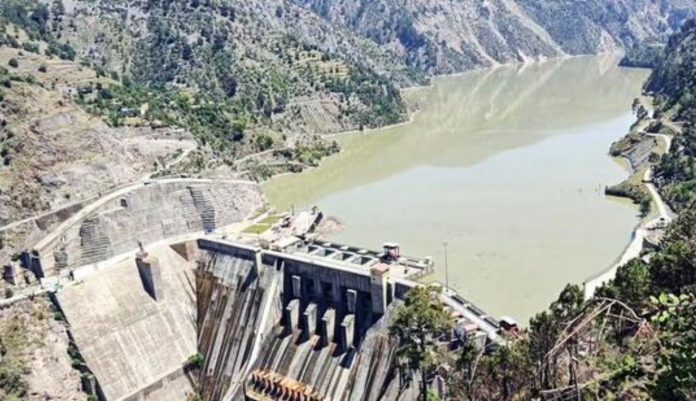India has made a strong move by cutting water flow to Pakistan from the Chenab River. This action came just hours after Pakistan tested a ballistic missile. It marks a major shift in India’s approach to the Indus Waters Treaty, as tensions between the two countries continue to rise. Below is a complete update of the issue in simple and Indian English.
All You Need to Know
- India stopped water flow from the Baglihar dam on the Chenab River
- De-silting operations reduced water flow to Pakistan by up to 90%
- Similar work to start at Kishanganga dam on Jhelum River
- Pakistan protested both dam designs earlier
- India suspended the Indus Waters Treaty after the Pahalgam attack on April 22
- Jal Shakti ministry planning to use water for northern Indian states
- NHPC engineers already working in Jammu & Kashmir
What Exactly Happened
India started maintenance work at the Baglihar dam on Saturday. Gates were closed for de-silting and this reduced the water sent to Pakistan by nearly 90%. Authorities say this is necessary to improve the dam’s power production. India is now focusing on using water resources for its own people after putting the Indus Waters Treaty on hold.
Why India Took This Step
India’s action came after Pakistan tested a missile. More importantly, India had already suspended the Indus Waters Treaty following the killing of tourists in Kashmir’s Pahalgam on April 22. India blames Pakistani terrorists for that attack. Officials say since the treaty is paused, India has full freedom to use river water flowing within its land.
New Dam Projects in Jammu & Kashmir
India is now pushing four major hydropower projects over the Chenab River:
- Pakal Dul: 1,000 MW – 66% complete
- Kiru: 624 MW – 55% complete
- Kwar: 540 MW – 19% complete
- Ratle: 850 MW – 21% complete
These are expected to be finished between 2027 and 2028. Together, they will generate over 10,500 million units of electricity annually.
No Notice to Pakistan
India began the de-silting and flushing work without informing Pakistan, breaking a rule under the Indus Waters Treaty. This is the first time such cleaning is done since the dams were built. The treaty had blocked this work for years.
Pakistan’s Reaction
Pakistan has threatened legal action and called this a war-like act. Islamabad also denied any role in the Kashmir attack and strongly opposed the dam works. But India continues to move ahead with the projects without involving Pakistan.
Power Production & Maintenance
Due to heavy silt, the Salal and Baglihar power stations were working below capacity. Now with the flushing process, sediment is being cleared. It is hoped this will boost electricity production and protect the turbines from damage. The process lasted three days from May 1 to May 3.
Where This is Leading
This is the first time India has openly acted outside the 1960 Indus Waters Treaty. The country wants full control of its dam operations. There are more such projects lined up in the Jammu & Kashmir region. With the treaty in suspension, India plans to prioritise its people and power needs over Pakistan’s water rights.
India’s decision to cut off water flow from the Chenab River to Pakistan marks a serious shift in regional diplomacy. With no signs of peace and continued border tensions, India is now exercising control over its rivers to benefit its citizens. Meanwhile, Pakistan has raised the issue internationally. How this water conflict unfolds will be crucial for both countries in the coming weeks.
Also Read: iQOO Neo 10 Teased Ahead of India Launch, Key Specs, Design & Price Leaked!
FAQs
Why did India stop water flow to Pakistan?
India stopped water after Pakistan’s missile test and due to security concerns following the Pahalgam attack.
Which dams are affected?
Baglihar and Salal dams are being flushed. Kishanganga is next.
What is flushing in dams?
Flushing means clearing sediments by nearly emptying the reservoir, improving dam function.
Is the Indus Waters Treaty still valid?
India has suspended the treaty for now and is operating outside its rules.
What is Pakistan’s reaction?
Pakistan called it a war-like act and may take legal action.





